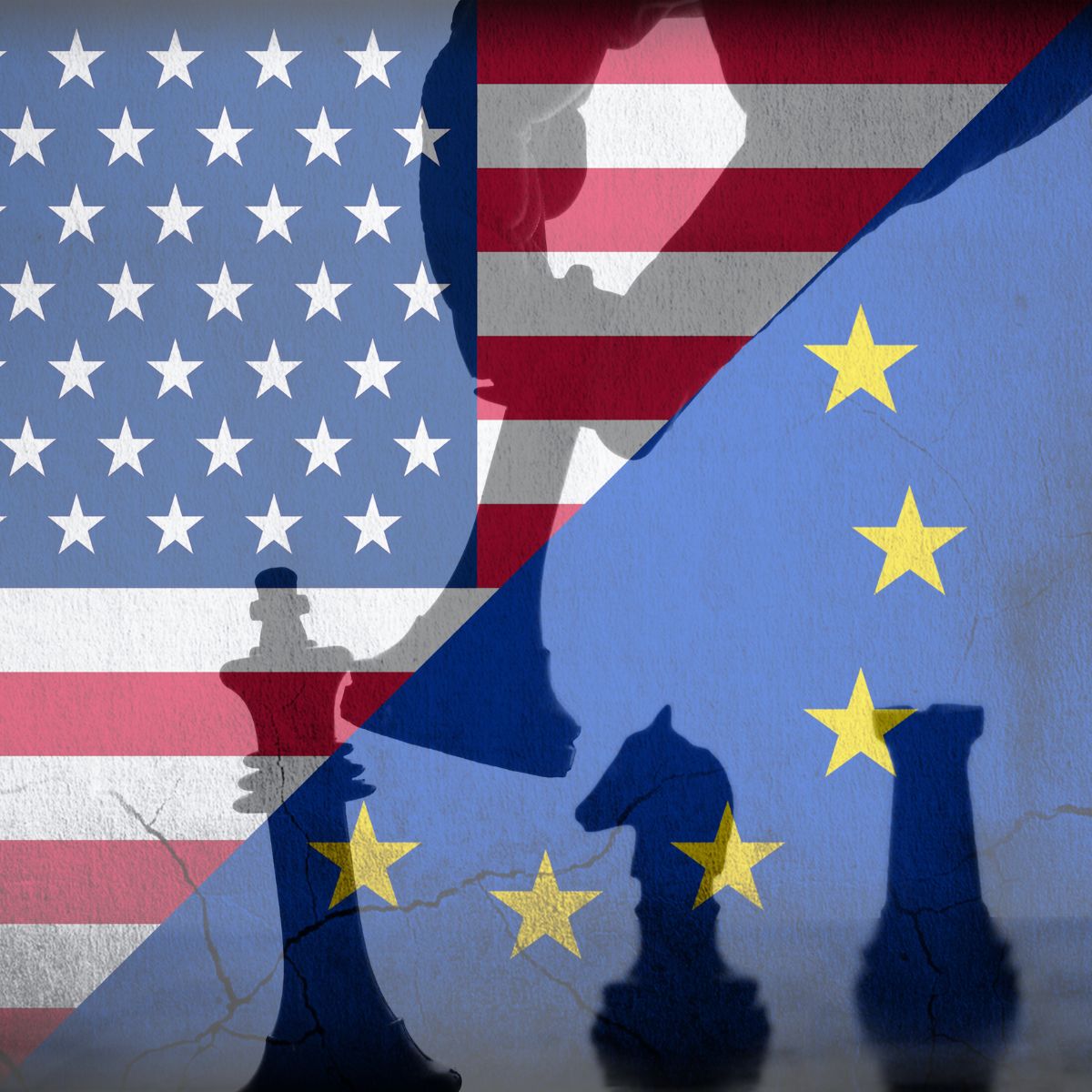A Data Protection Debacle With Global Repercussions
An everyday scenario:
A German authority or a European hospital uses a well-known US cloud platform to store and process sensitive data, including personal information, strategic plans, medical findings, and security-critical documents.
Previously, there were at least formal guarantees that such data could not be arbitrarily analyzed and further used by US authorities or companies. However, this guarantee is now null and void:
On January 27, 2025, the Trump administration dismissed three Democratic members of the Privacy and Civil Liberties Oversight Board (PCLOB). This independent authority monitors and evaluates US surveillance practices to ensure transparency and data protection. With the loss of its members, the PCLOB lost its quorum and is currently unable to carry out its work effectively.
This development is important for European companies that do business with the USA or store data there. It once again raises questions about EU data sovereignty and secure communication solutions.
The Role of the PCLOB in the EU-US Data Protection Framework
The Privacy and Civil Liberties Oversight Board (PCLOB) is an independent agency within the US government’s executive branch established by Congress in 2004. It aims to balance national security and the protection of civil rights.
To this end, the Board advises the President and other senior executive branch officials to ensure that privacy and civil liberties concerns in the United States are appropriately considered in developing and implementing all terrorism-related laws, regulations, and executive branch actions.
Effects on European Companies
Transatlantic data traffic has already been a critical issue. In 2020, the European Court of Justice (ECJ) declared the EU-US Privacy Shield invalid (Schrems II ruling) because US surveillance laws are not compatible with the General Data Protection Regulation (GDPR). In particular, the ECJ criticized the extensive surveillance powers of US security authorities and the lack of legal protection for affected EU citizens.
The Trump administration’s decision to dismiss the three Democratic members of the PCLOB now has further profound consequences for European companies, organizations and authorities:
The PCLOB was one of the few US institutions that at least provided a formal mechanism for safeguarding data protection rights. Without this protective body, European companies and organizations are now in an even more precarious position. The data processed via US services is hardly protected from uncontrolled access.
Companies that store their data in US clouds must now assume that this data can be legally analyzed, sold, or even passed on to US government agencies.
This poses a significant threat, particularly for critical infrastructure operators, municipalities, public authorities, and the healthcare sector. Sensitive information can fall into the wrong hands, resulting in data breaches and security risks.
This development is a wake-up call for those responsible in Europe. Dependence on US cloud services harbors enormous risks for data protection, compliance, and cyber security.
But what alternatives are there? And how can European companies and organizations regain their data sovereignty?
EU Data Sovereignty: Why Companies and Authorities Need to Act Now
Many companies and public authorities rely on services such as Microsoft 365, Google Workspace, Amazon AWS, or WhatsApp without realizing the consequences. The data stored there is removed from direct control by European institutions and exposed to the risk of being used in unpredictable ways, as US laws allow.
Some examples from everyday life:
- A hospital that manages patient data via a US cloud can no longer ensure this information remains confidential.
- A city administration that stores administrative files in a US cloud risks this information being viewed by third parties.
- Even private companies that store sensitive business strategies or product developments on US servers expose themselves to the risk of industrial espionage.
These recent developments highlight the need for European companies to examine data sovereignty more closely. To minimize these risks, European states and companies must promote their alternatives.
GAIA-X was one of the original efforts and initiatives to create a secure European cloud environment.
Currently, providers such as IONOS offer technologically advanced and sovereign clouds for the EU.
The goal is a secure, connected, and trusted data infrastructure based on European values and standards. European data should be stored in European data centers, and EU states should retain control over data protection standards.
Consideration should also be given to on-premise solutions allowing companies and public authorities to manage their IT infrastructure.
Another key component of EU data sovereignty is using secure communication platforms that do not rely on US infrastructures.
The Importance of Secure Communication Systems
The uncertainties surrounding data protection between the EU and the US underline the need for companies to rely on secure communication solutions.
Companies that continue to rely on consumer messaging services such as WhatsApp or Microsoft Teams or trust cloud services with connections to the USA are exposing themselves to considerable risks.
Why Is a Secure Communication Solution Crucial?
Let’s look at five key points:
- Protection against unauthorized access: US surveillance programs such as the CLOUD Act allow US authorities to access data, even if it is stored on servers outside the US. A secure, GDPR-compliant solution from an EU-based provider protects companies from such access. For example, look for ISO 27001-certified hosting in a BSI-C5-tested cloud.
- No metadata monitoring: Many messengers store and analyze metadata, meaning third parties can track who communicates with whom. A secure communication solution guarantees no metadata is analyzed or passed on, giving companies and organizations maximum privacy.
- High encryption standards: A secure communication solution ensures state-of-the-art encryption for messages, files, and calls to protect confidential company communications.
- Data storage within Europe: Companies that store their data within the EU benefit from clear data protection regulations and avoid legal risks arising from insecure data transfers.
- Security for critical industries: A highly secure messenger solution is essential for public authorities, the healthcare sector, critical infrastructures, and security organizations. These industries are particularly susceptible to data breaches and benefit from a GDPR-compliant communication solution.
Teamwire: A GDPR-Compliant Solution for Secure Communication Made in Germany
Teamwire is a solution specially developed for professional and official requirements.
Teamwire guarantees
- data protection-compliant, secure communication.
- state-of-the-art encryption so third parties cannot view that message content.
- EU-certified hosting, which keeps control in European hands.
- Data storage exclusively within the EU.
- complete control over your communication infrastructure through centralized, professional administration.
- protection against potential data breaches and compliance risks.
- secure collaboration between different organizations through its federation capability without relying on insecure third-party services.
Therefore, companies and public authorities benefit from a robust, data protection-compliant communication solution that meets the highest security requirements.
Time for European Digital Independence
The dismissal of the PCLOB members marks the end of the illusion that European data is safe in US clouds.
The need to become independent of US services and rely on GDPR-compliant solutions becomes even more urgent. Secure communication solutions like Teamwire must comply with data protection guidelines and protect sensitive company data.
Companies and public authorities must act now to strengthen their data sovereignty and be prepared for the changing data protection landscape. Dependence on US services is a data protection problem and a strategic risk for Europe’s digital future.
It is time for companies and organizations to rethink their digital infrastructure and rely on secure European alternatives. Teamwire offers a future-proof communication solution that combines the highest security standards with maximum control and intuitive operation.
If you are not yet part of the Teamwire community, we invite you to learn more about our solutions – either through our success stories or a free demo:
Here, you can read case studies from various sectors where Teamwire has been used successfully. These include the police, medical services, and municipal administrations.
➡️ Here are the success stories.
You can also book a free product tour at any time.

